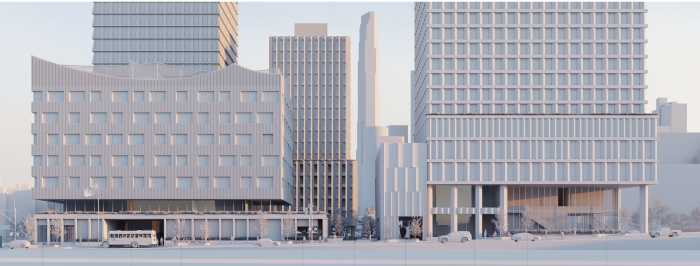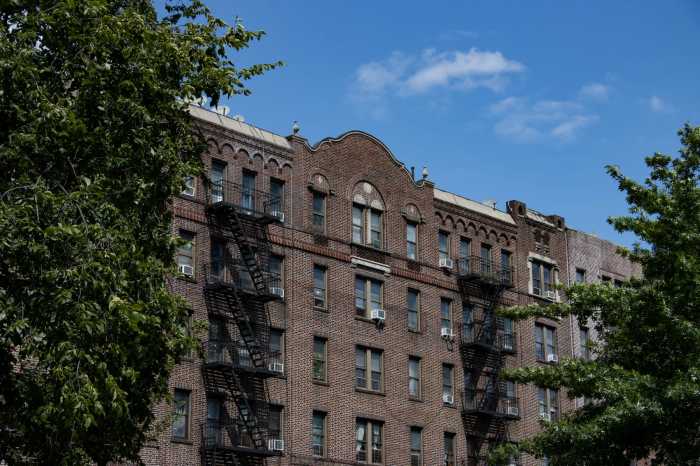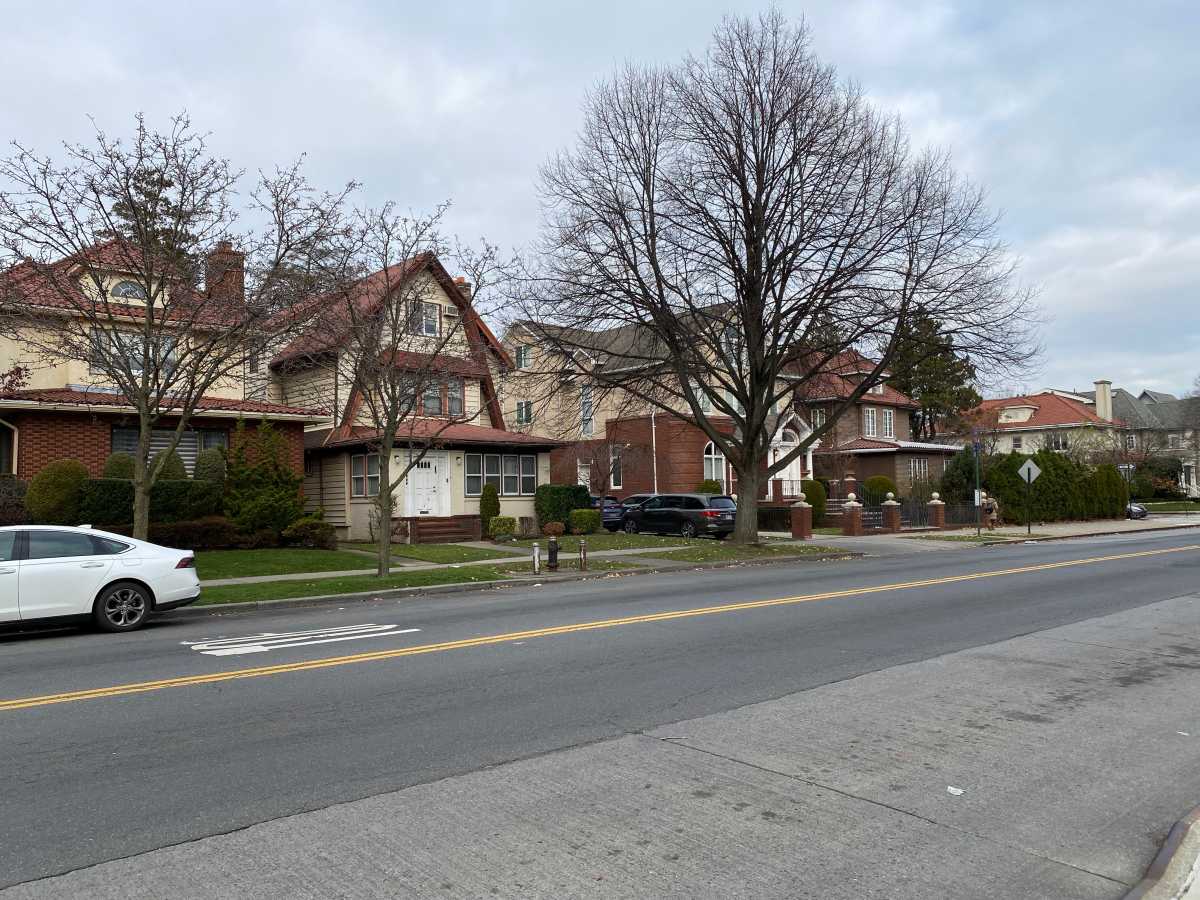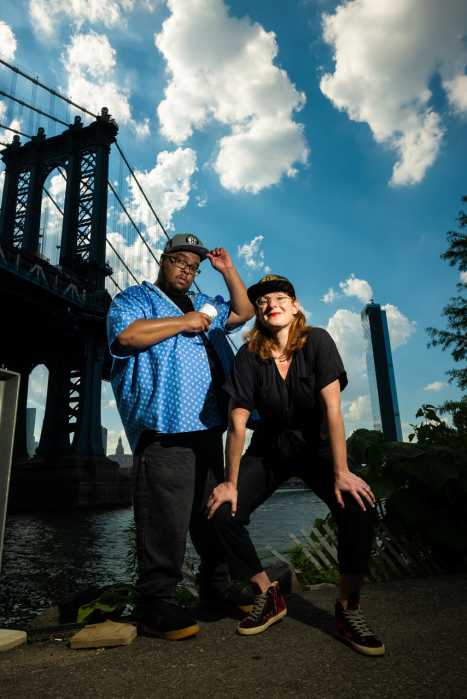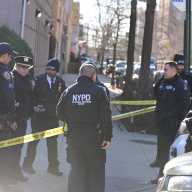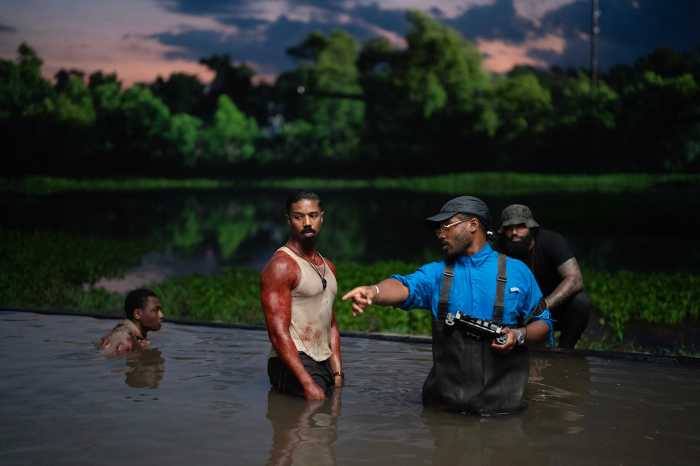Former Knicks and Nets basketball star Bernard King, a key pointman in
Bruce Ratner’s campaign to win approval for the Atlantic Yards mega-development,
was arrested Saturday and charged with three counts of assault against
his wife of seven years.
Two days after the 5:35 am arrest, Forest City Ratner executive vice president
Bruce Bender said the company would “have nothing to do with him,”
if the charges were true.
A Forest City source told The Brooklyn Papers the following day that regardless,
“He’s done. It’s over.”
King, 47, who was born in Fort Greene and attended Fort Hamilton High
School in Bay Ridge, had provided public relations and community outreach
in the areas surrounding the Atlantic Yards site in Prospect Heights.
King and his wife, Shana, 35, who live in Atlanta, were staying at Ratner’s
Embassy Suites hotel in Battery Park City when employees of the hotel
contacted police over noise complaints. Police busted in and found Shana
bruised and swollen on her forehead and right eye.
King described the charges of domestic abuse as “a misunderstanding”
and told the New York Post that the charges would be dropped.
On Thursday, the 6-foot-7 forward and a four-time All-Star sat quietly
in a courtroom at 100 Centre St. in Manhattan, his head hanging and hands
folded in his lap.
A trial date was set for Jan. 6, 2005, and after King was handed his notice,
he was ushered into a stairwell where he hid out until he could leap into
a Jeep waiting for him in front of the building.
He was accompanied only by his attorney.
King was hired by Ratner’s group in late 2003 on a contractual basis,
and since then has made major promotional appearances, worked as a consultant,
approached the City Council on behalf of the project, and helped set up
a basketball summer program for area youth.
Bertha Lewis, director of Acorn NY, a housing advocacy group working on
developing a community benefits agreement with Forest City Ratner, said
she’d met King, and he didn’t strike her as a violent type.
“When I ran into him I always liked being with him,” she said.
“He always struck me as being a gentleman.” She said she did
not think that losing him would affect public view of the arena proposal.
“Bernard King doesn’t sway anybody,” she said, and thought
the merit of the arena would be judged on its own.
James Caldwell of BUILD, another group working with Ratner’s company,
was more empathetic towards King, and thought his presence did help generate
support for the project.
“I’m in the same age bracket with Bernard King,” he said.
“I love sports, and I loved basketball as a sport in particular.
To see him as part of the project, it certainly touched me. Because he
was a great ball player — and to see that he came from the Fort Greene
housing developments — for someone to come from a place like he did
and to achieve what he acheived, it was wonderful.”
But Scott Turner, of Fans for Fair Play, an anti-arena group, disagreed.
“Primarily he was used as a hood ornament, at least that’s how
it always came across to us,” he said. “The thing about Bernard
King, is he’s the perfect example: Forest City Ratner when they engage
in things they think are culturally relevant, they usually tend not to
be, or turn out to be very clumsy maneuvers in an attempt to be.”
He said choosing Stephan Marbury or Albert King, Bernard’s brother,
would have been wiser for a spokesperson than someone with a “record
of abusing women.”
According to the New York Daily News, King pleaded guilty in 1980 to charges
of attempted forcible sexual abuse. In 1994, he was charged with third
degree assault after a womain claimed he choked her in his Manhattan apartment.


